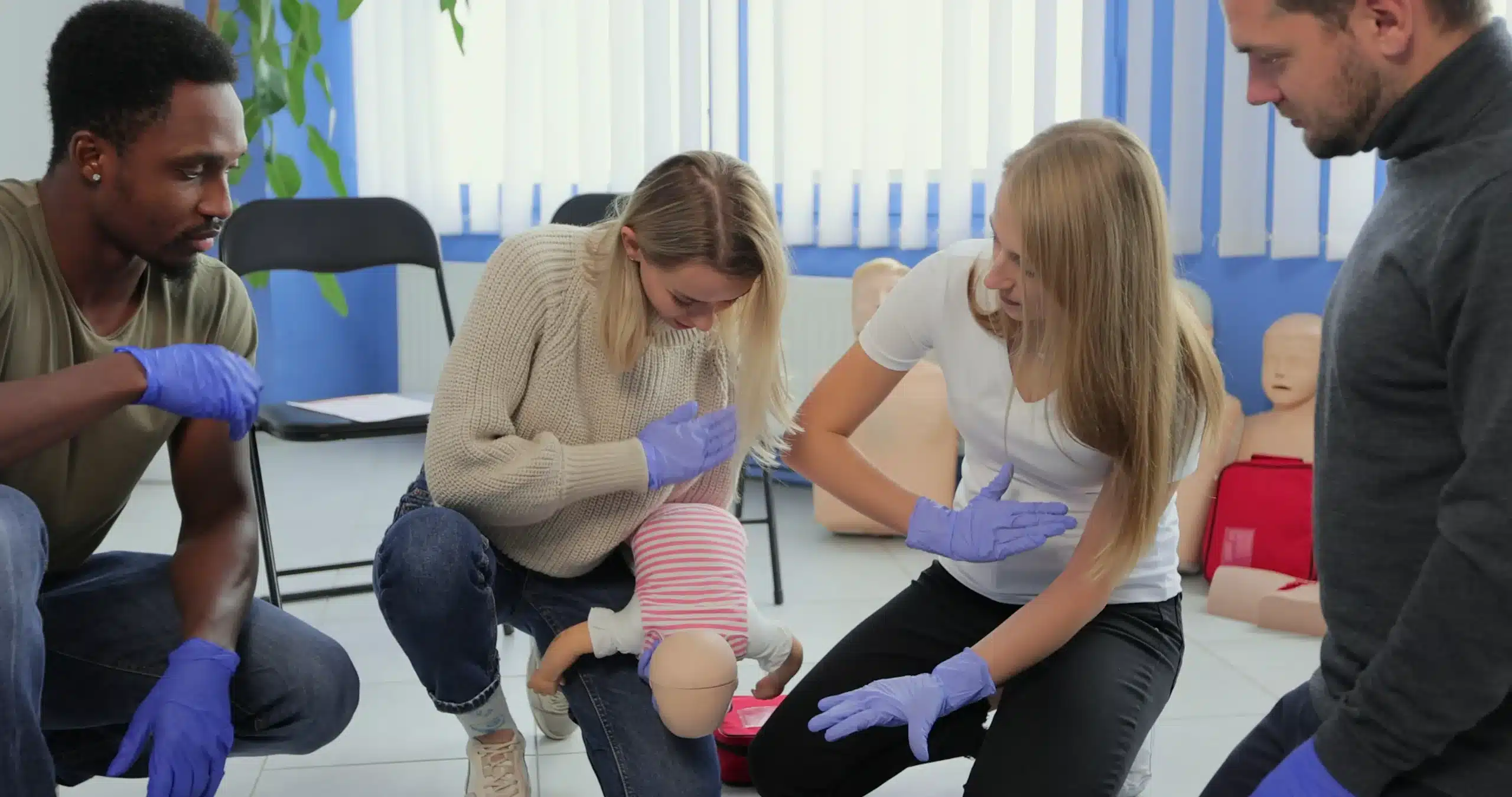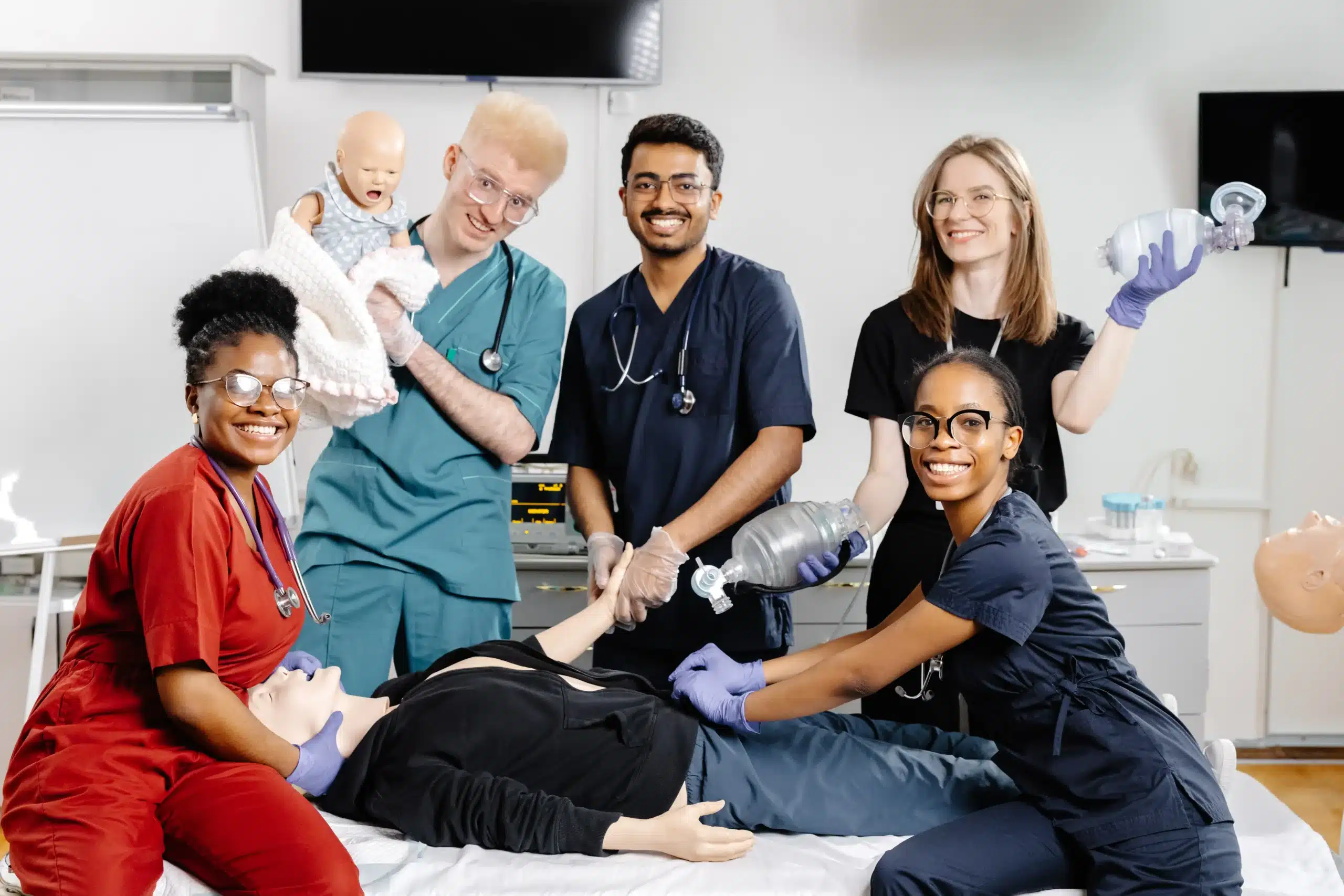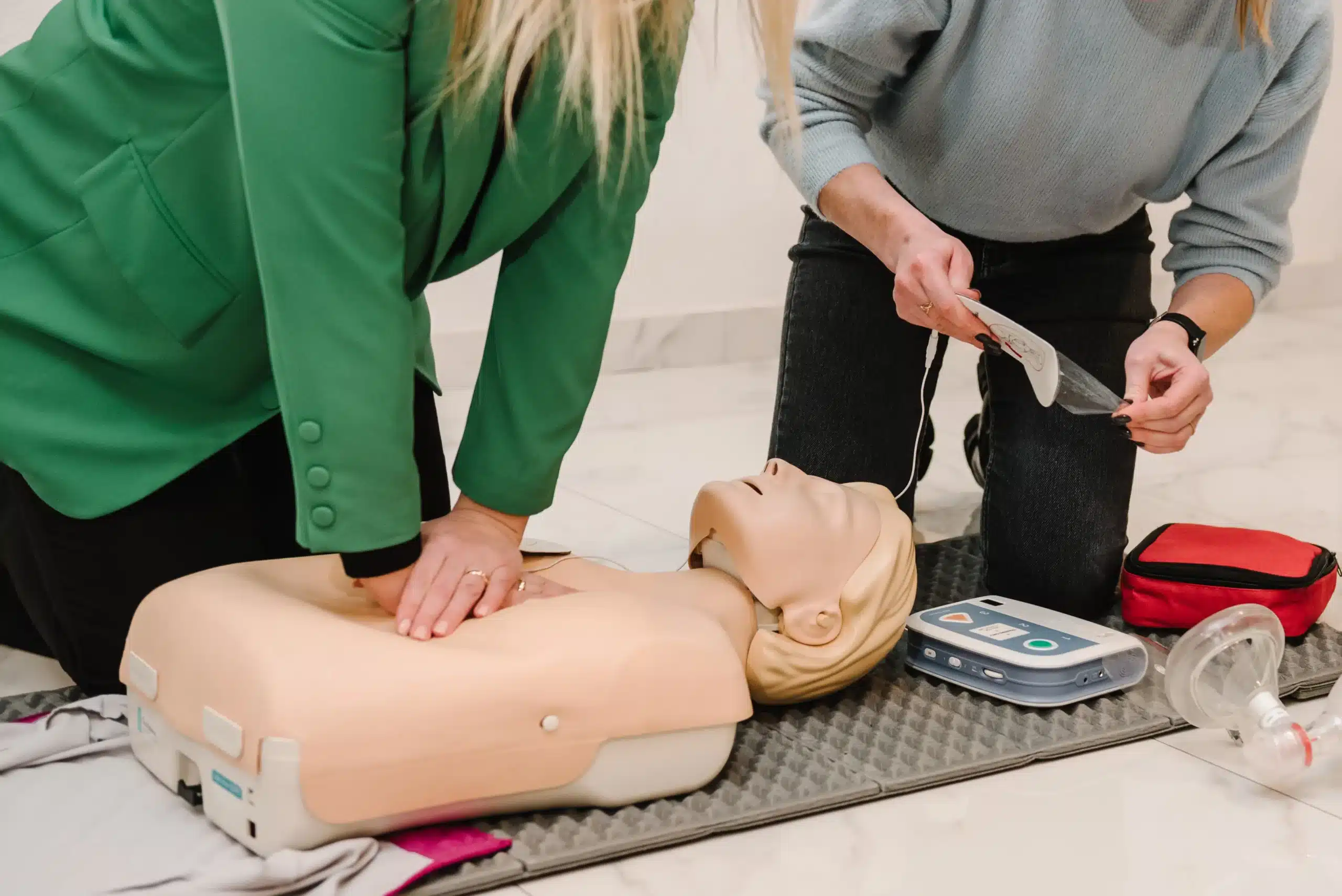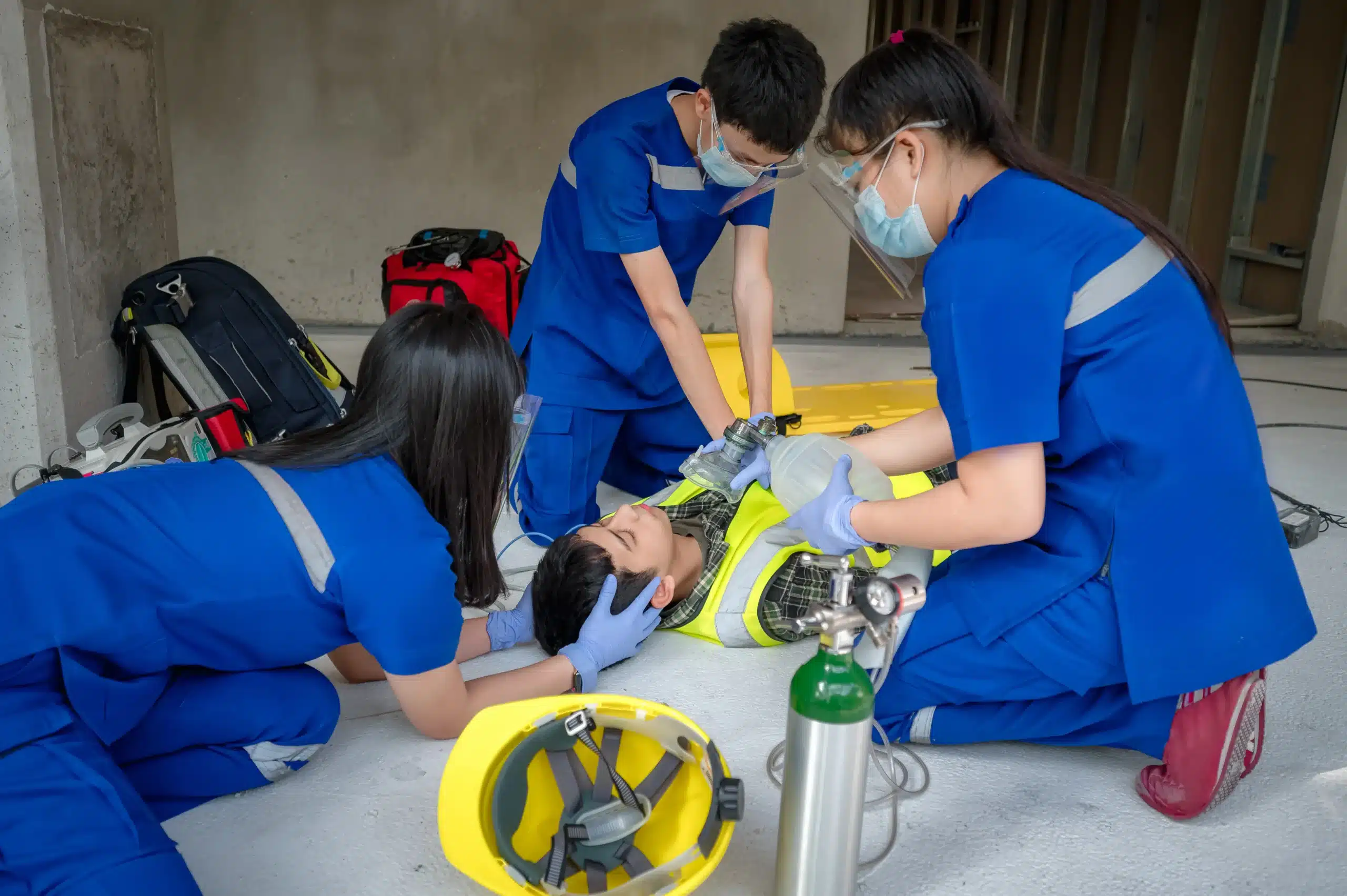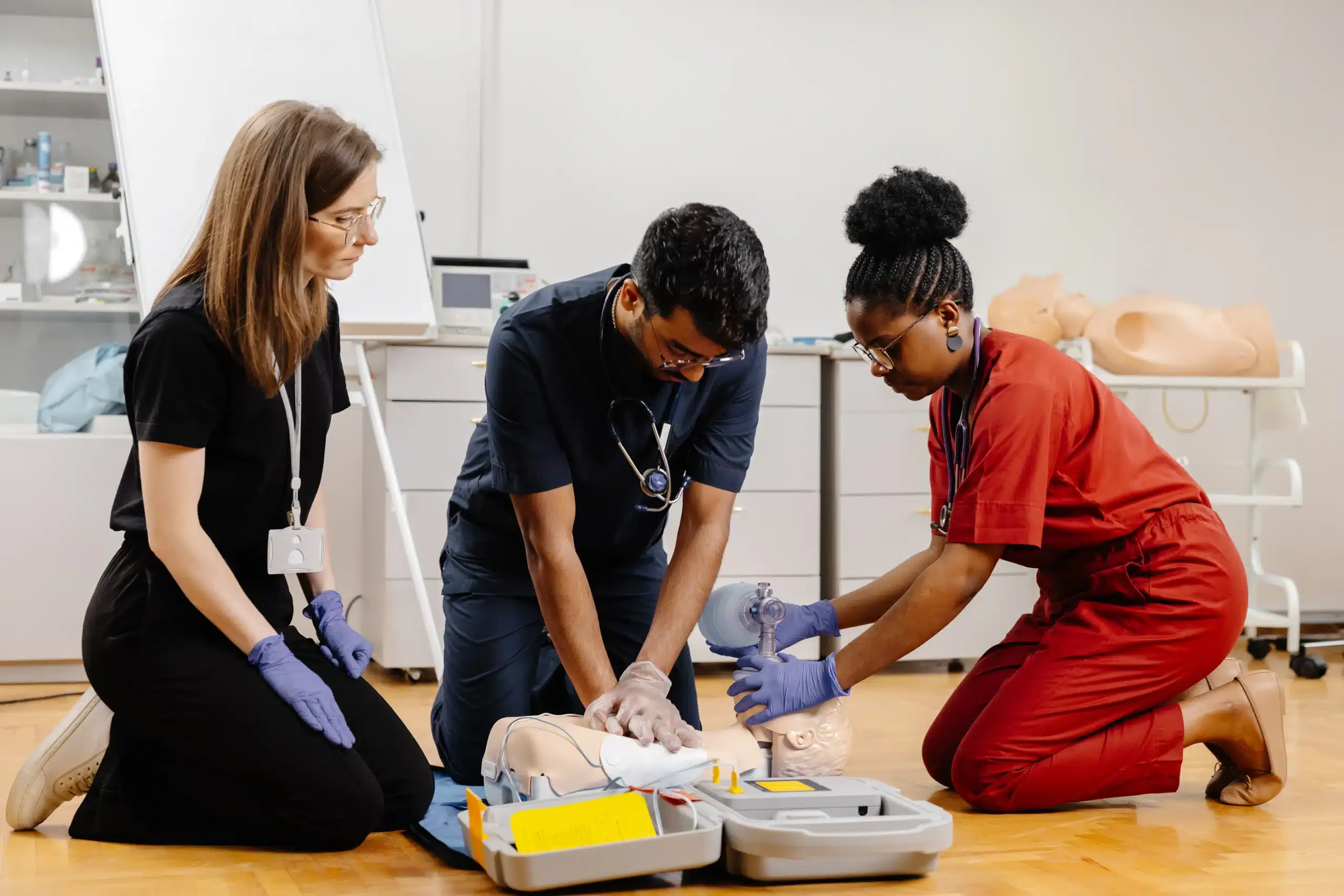Juggling work, family, and everything in between? Finding time for essential certifications like CPR can feel impossible. But what if you could learn lifesaving skills on your own schedule, from the comfort of your home? Online CPR classes in Concord offer the flexibility you need to gain this vital knowledge without disrupting your busy life. This guide explores the world of online CPR training, covering everything from course options and benefits to choosing the right provider and maximizing your learning experience. We’ll also discuss the pros and cons of online versus in-person training and highlight some top providers in the Concord area.
Key Takeaways
- Online CPR training offers flexibility: Learn lifesaving skills at your own pace and on your own schedule, making it ideal for busy individuals. Choose a reputable provider with accreditation from a recognized organization.
- Blended learning provides a well-rounded experience: Combine the convenience of online learning with the crucial hands-on practice and feedback you get in an in-person skills session.
- Research providers and courses carefully: Consider factors like cost, course content, certification validity, and available discounts to find the best fit for your needs and learning style.
What Are Online CPR Classes in Concord?
What are online CPR classes?
Online CPR classes offer a flexible way to learn lifesaving skills. They deliver the same essential information as traditional classroom courses, but on your own time. This format works well if you have a busy schedule or prefer self-paced learning. You’ll study core concepts, understand how to recognize emergencies, and learn the steps to provide effective CPR.
What online CPR courses are available?
Several organizations offer online CPR training, including the American Red Cross and the American Heart Association. You can find various online CPR and first-aid certifications, often combined. Choose a course accredited by a recognized organization to ensure your certification is valid and meets requirements. Safety Training Seminars offers American Heart Association courses, including BLS, ACLS, and PALS. You can also find more specialized training online, such as the American Academy of Pediatrics NRP course.
Benefits of online CPR training
The biggest advantage of online CPR training is flexibility. You can study when and where it’s convenient, fitting the coursework around your existing commitments. Online learning lets you review materials as needed and progress at your own pace. Many online courses incorporate interactive elements and simulations to help you practice applying your skills. While online courses offer a solid foundation, they often pair with in-person skills sessions for hands-on practice and instructor feedback. This blended learning approach combines online convenience with practical application.
Top Concord Providers and Courses
Finding the right CPR certification course can feel overwhelming with so many options. This section breaks down some of the leading providers in and around Concord, highlighting what they offer to help you make an informed decision.
Safety Training Seminars
Safety Training Seminars offers a range of American Heart Association (AHA) certified courses, including BLS, ACLS, PALS, CPR, and First Aid. They also offer more specialized training like the Neonatal Resuscitation Program (NRP) and courses designed specifically for California childcare providers. This makes them a good option for those seeking a variety of certifications or specialized training. Serving Antioch, Brentwood, and Concord, they focus on providing convenient, local classes. They also offer discounts for group classes. Visit the Safety Training Seminars website for more information.
CPR Training Center
CPR Training Center provides AHA-certified CPR, BLS, ACLS, and PALS courses. They primarily serve the Bay Area, with a focus on Contra Costa County cities like Concord, Walnut Creek, San Ramon, Brentwood, and Pleasant Hill. This concentration on the local area suggests they understand the specific needs of the community. Visit their website for details on schedules and registration.
American Red Cross
The American Red Cross offers a variety of CPR classes and certifications, with options for online, in-person, and blended learning (a combination of online and in-person instruction). Their courses cover adult, child, and infant CPR, including hands-only CPR and CPR with rescue breathing. Check the American Red Cross website for classes near you. Their diverse learning formats could be appealing depending on your learning style and schedule.
American Heart Association
While the American Heart Association doesn’t directly provide classes, they are the gold standard for CPR training. Ensure any online CPR certification you pursue comes from a reputable organization accredited by the AHA, as this guarantees the training meets the latest standards and guidelines. You can learn more about the AHA’s training standards on their website.
National CPR Foundation
The National CPR Foundation offers an internationally recognized online CPR, AED, and First Aid certification. Their curriculum adheres to the 2015-2020 AHA guidelines, indicating a commitment to providing up-to-date training. This could be a valuable option for those seeking a flexible online certification. Visit the National CPR Foundation website for more information.
Compare Online CPR Class Options
Finding the right online CPR class means comparing several key factors to make an informed decision. Here’s what to consider:
Course Offerings and Content
Providers offer a variety of online CPR and first-aid courses. Safety Training Seminars, for example, provides AHA-certified courses in BLS, ACLS, PALS, CPR, and First Aid. They also offer specialized courses like the NRP and courses for California childcare providers. The Red Cross also offers online, in-person, and blended learning CPR classes. Ensure the course content aligns with your specific requirements, whether you need basic CPR/AED training or a more advanced certification like ACLS or PALS.
Pricing and Value
CPR course pricing varies. Basic CPR and First Aid courses typically start around $75, while more advanced certifications like ACLS and PALS range from $150 to $250. Safety Training Seminars offers a low price guarantee. Consider the overall value, including continuing education credits, digital materials, or other benefits.
Certification Process and Validity
A valid CPR certification is essential. Legitimate online CPR certifications come from reputable organizations accredited by the AHA or similar bodies. Some employers may require in-person training components, so check with your workplace or licensing board before registering.
Accreditation and Recognition
Not all online CPR certifications are equal. Many online-only options exist, but their legitimacy can be questionable. Major certifying organizations like the AHA and Red Cross generally don’t fully accept online-only CPR certifications. Choose a recognized provider like Safety Training Seminars, known for its affordability and low-stress learning environment.
Discounts and Promotions
Many CPR training providers offer discounts, especially for groups. Safety Training Seminars advertises competitive pricing in Contra Costa County and has a low-price guarantee. Check their website calendar for course dates and times, and consider programs like RQI for a potentially faster certification process.
Online vs. In-Person CPR: Pros and Cons
Deciding between online and in-person CPR training depends on your learning style, schedule, and specific needs. Both formats offer distinct advantages and disadvantages. Let’s break down the pros and cons to help you choose the best path for your CPR certification.
Advantages of online CPR training
Online CPR training offers unparalleled flexibility. You can learn at your own pace, revisiting sections as needed, and fitting the training around your existing commitments. This makes online learning a great option for busy professionals, parents, or anyone with a packed schedule. Many online courses offer interactive elements and simulations, creating an engaging and effective learning experience. Plus, online course might be a good fit.
Potential drawbacks of virtual learning
While online CPR training offers convenience, it’s important to be aware of potential limitations. One key drawback is the lack of hands-on practice with a certified instructor. The American Heart Association, American Red Cross, and other major certifying organizations require in-person skills testing for certification. A fully online CPR certification might not meet these requirements. Always verify the legitimacy and acceptance of an online-only certification before you enroll. If your workplace or regulatory body requires a specific certification, confirm that a 100% online course will fulfill those needs. For some, the absence of a physical classroom can also make it harder to stay focused.
Hybrid learning options
Hybrid learning models offer a compelling solution, combining online learning flexibility with essential hands-on practice. You can complete the theoretical coursework online at your own pace and then schedule a shorter in-person session to demonstrate your skills and receive instructor feedback. This blended approach provides the best of both worlds. You learn the material conveniently while still gaining the practical experience necessary for real-world scenarios. For many, this is the ideal way to obtain a recognized and respected CPR certification. Our courses at Safety Training Seminars in Brentwood follow this hybrid model, offering online learning combined with crucial hands-on skills sessions. You can explore our course options on our website.
Who benefits most from each format?
The best format depends on your individual learning style and circumstances. Online learning often works well for self-directed learners comfortable with technology. If you thrive in a structured classroom environment and value direct interaction with an instructor, in-person training might be a better choice. Hybrid learning is an excellent option for those who want flexibility but also recognize the importance of hands-on practice. Consider your personal preferences, learning goals, and any certification requirements when making your decision. If you’re unsure which format is right for you, contact a training provider like Safety Training Seminars to discuss your options. We’re happy to help you find the best fit.
Ensure Quality and Effectiveness in Online CPR Training
Online CPR training offers a convenient way to learn this life-saving skill, but how can you ensure your online course is truly effective? It’s important to look for specific features and adopt helpful study strategies.
Interactive Elements and Skill Assessment
Effective online CPR training goes beyond passive video lectures. Look for courses that incorporate interactive elements like quizzes, simulations, and virtual scenarios. These features keep you engaged and reinforce what you’re learning. Real-time feedback, like that described in research on the importance of immediate feedback, is crucial for improving CPR quality. This feedback helps you understand your performance and identify areas for improvement, making the learning process more effective.
Blended Learning Approaches
Consider a blended learning approach, which combines online learning with hands-on practice. This model, as explained in this article on online CPR certifications, allows you to learn the theory online at your own pace and then attend an in-person session to practice your skills. This combination often provides a well-rounded learning experience. Safety Training Seminars offers this type of blended learning. Check out our CPR course options to learn more. We proudly serve Antioch, Brentwood, and Concord.
Tips for Effective Online CPR Study
A few simple strategies can improve your online CPR learning journey. The American Heart Association offers helpful advice on using their eLearning platform, including tips for those less comfortable with technology. Don’t feel pressured to complete the entire online portion at once. As ProTrainings explains in their post on different learning modalities, breaking the material into shorter sessions can improve retention and understanding. Find a quiet study space, minimize distractions, and take regular breaks to keep your focus sharp.
Choose the Right Online CPR Class in Concord
Finding the right online CPR class in Concord means considering a few key factors to ensure you receive high-quality training and certification. This section breaks down what to look for in a provider, how to enroll, and where to find local support.
Factors to consider when selecting a provider
Before committing to a class, compare course prices, which can vary significantly. Basic CPR and First Aid certification often starts around $75, while more advanced certifications like ACLS and PALS can range from $150 to $250. Knowing the price range helps you budget and find a provider that aligns with your financial needs. Also, consider the provider’s target audience. A company specializing in healthcare training may be a better fit for medical professionals than a general CPR training company. Group discounts may also be available.
Steps to enroll and get certified
Enrolling in an online CPR class is usually straightforward. Browse the American Heart Association (AHA)-certified courses offered by various providers, including BLS, ACLS, PALS, CPR, and First Aid. Many providers also offer specialized courses, like those designed for California childcare providers. A convenient aspect of online learning is the flexibility. You don’t have to complete the online portion in one sitting; work through the modules at your own pace.
Local resources and support
Even with online classes, local resources can be valuable. Concord has several training centers offering ACLS renewal courses, which typically include a review of current guidelines and hands-on practice. This is helpful for refreshing your skills and staying up-to-date with the latest practices. For those seeking BLS courses, Safety Training Seminars provides AHA-certified training in nearby Walnut Creek, ensuring comprehensive training and a recognized certification. You can also find a directory of CPR classes in Northern California.
Related Articles
- Online CPR Classes in Brentwood: A Complete Guide
- Online CPR Classes in Antioch: Your Guide – Brentwood CPR Classes
- Online PALS Classes in Concord: Your Guide – Brentwood CPR Classes
- CPR Training in Concord: Find the Right Course for You – Brentwood CPR Classes
- BLS Certification in Concord: Your Comprehensive Guide – Brentwood CPR Classes
Frequently Asked Questions
Is online CPR certification enough?
While online CPR training offers a convenient way to learn the basics, most recognized organizations like the American Heart Association and the Red Cross require an in-person skills assessment to receive full certification. A blended learning approach, combining online coursework with a hands-on skills session, is often the best way to meet these requirements.
How much do CPR classes cost in Concord?
The cost of CPR classes varies depending on the provider, the type of certification (CPR, BLS, ACLS, PALS, etc.), and the format (online, in-person, or blended). Basic CPR and First Aid courses typically start around $75, while more advanced certifications can range from $150 to $250. Look for providers offering discounts, especially for group registrations.
What’s the difference between CPR, BLS, ACLS, and PALS?
CPR (Cardiopulmonary Resuscitation) focuses on chest compressions and rescue breaths for anyone who has stopped breathing or has no pulse. BLS (Basic Life Support) builds upon CPR, adding techniques like using an AED and relieving choking. ACLS (Advanced Cardiovascular Life Support) is for healthcare professionals and covers advanced life-saving procedures for cardiac arrest and other cardiovascular emergencies. PALS (Pediatric Advanced Life Support) is similar to ACLS but focuses on children.
How do I choose the right CPR class format for me?
Consider your learning style, schedule, and specific needs. Online classes offer flexibility, while in-person classes provide direct interaction with an instructor. Blended learning combines the benefits of both. If you’re self-motivated and prefer learning at your own pace, online or blended learning might be a good fit. If you prefer a structured classroom setting, in-person training could be a better choice.
What should I look for in a reputable online CPR training provider?
Choose a provider accredited by a recognized organization like the American Heart Association or the American Red Cross. Look for courses that incorporate interactive elements, offer blended learning options with in-person skills sessions, and clearly outline the certification process and its validity. Check reviews and compare pricing to find a provider that meets your needs and budget.


